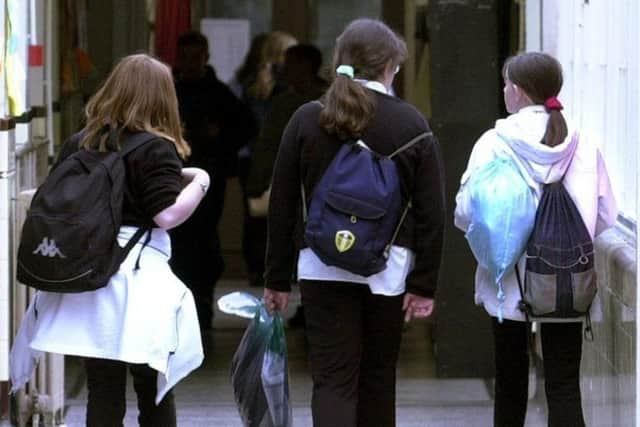Opinion: Education focus with Chris Head


Obviously it is important that journalists bring these issues to the public’s attention, although the wider situation and implications need to be examined.
The marketisation of education does not only relate to the privatisation or academisation of schools but everything that goes on within the system.
Advertisement
Hide AdAdvertisement
Hide AdWithin the classroom of all schools the students must meet their targets, these targets directly affect the teachers’ performance related pay or conversely capability procedures and the sack.


These targets in relation to progress achieved as shown by the school’s exam results impact on Ofsted reports and league tables.
The student’s individual targets are forecast by a small number of software programmes containing the historical results from around the nation.
Bringing the market into the classroom has been counterproductive and damaged education.
Advertisement
Hide AdAdvertisement
Hide AdIt is therefore understandable that any negative distraction or poor behaviour in the classroom is removed to enable the students that remain to make progress with their learning and meet or better still beat their targets.
For more than 20 years children in the UK have been constantly tested.
However, the behaviour data make it seem that our schools are more like the Wild West.
Why is it that poor behaviour seems to be increasing?
There is real concern amongst teachers, especially in terms of verbal and physical assaults.
Advertisement
Hide AdAdvertisement
Hide AdExclusion rates are up, pupil referral units across the county are full and pupil referral services are overstretched.
It has long been agreed that students in the UK are tested much more that the children of most other nations. Since 2010 the curriculum has narrowed with ‘craft’ and vocational subjects being lost.
Subjects that previously engaged students who find school challenging no longer exist on the timetable.
Previously the aim of our education service was to produce rounded citizens who had, with all the other lessons, also been able to enjoy Music, Food technology, Art and Craft Design & Technology lessons.
Advertisement
Hide AdAdvertisement
Hide AdHowever, schools appear to have been converted to exam factories.
Finland is consistently at the top of the international list in terms of educational outcomes and they still have ‘craft’ subjects.
The mental health of students has featured in media reporting and recently there have been stories that relate to self-harm affecting significant numbers.
Craft subjects which are being lost in the UK are seen to have a positive effect on mental health and may significantly help.
Advertisement
Hide AdAdvertisement
Hide AdThere is no way we can get away from the ‘elephant in the room’ - funding has been seriously and needlessly cut since 2010. Austerity was a political decision which has only benefited the top 1% and the bankers.
Students don’t vote so have not been a priority.
The largest and most recent cuts seem to be in the High Needs Fund which is dedicated to students with special needs but is also used to support PRU’s and Pupil Referral Services.
The impact of this Government’s 2014 SEND review has made the situation worse when it should have made it better.
Stories of children going hungry in the summer break because there are no free school meals are appalling.
Advertisement
Hide AdAdvertisement
Hide AdWhy is the UK, one of richest nations in the world, reneging on its responsibilities to its most needy children? All of these problems can be traced back to decisions by central government and all of the solutions can be found there.
Teachers need the help of the community to bring about a counter revolution in education to reel in the negative impact of 30 years of neoliberalism.